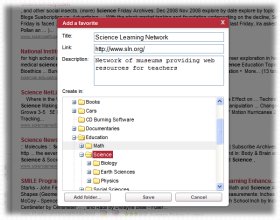|
Education
Web
Viewing 1-5 of 5 total results
(Formative/Summative Assessment) #0;3 0401.3.1 Determine an audience and a purpose for writing. #0;3 0401.3.2 Write for a variety of purposes: to entertain, persuade, inform, demonstrate knowledge, answer questions, respond to literature, acquire knowledge (e.g., take n...
1
0
(Formative/Summative Assessment) #0;3 0401.3.1 Determine an audience and a purpose for writing. #0;3 0401.3.2 Write for a variety of purposes: to entertain, persuade, inform, demonstrate knowledge, answer questions, respond to literature, acquire knowledge (e.g., take notes, synthesize information). #0;3 0401.3.3 Practice writing to a prompt within a specified time limit. #0;3 0401.3.4 Write poems, stories, and essays based upon personal reflections, observations, and experiences. #0;3
5
0
http://www.state.tn.us/education/ci/english/doc/ENG_Grade_4.pdf#page=5
www.state.tn.us/education/ci/english/doc/ENG_Grade_4.pdf#page=5
(Formative/Summative Assessment) #0;3 0401.3.1 Determine an audience and <span class="highlight">a</span> purpose <span class="highlight">for</span> writing. #0;3 0401.3.2 Write <span class="highlight">for</span> <span class="highlight">a</span> variety of purposes: to entertain, persuade, inform, demonstrate knowledge, answer questions, respond to literature, acquire knowledge (e.g., take notes, synthesize information). #0;3 0401.3.3 Practice writing to <span class="highlight">a</span> prompt within <span class="highlight">a</span> specified time limit. #0;3 0401.3.4 Write poems, stories, and essays <span class="highlight">based</span> upon personal reflections, observations, and experiences. #0;3
purpose for reading, to activate prior knowledge, and to facilitate the reading process. 3.1.tpi.14. read aloud grade appropriate texts texts fluently and accurately, using appropriate timing and changes in voice and expression. 3.1.tpi.15. read a variety of texts (e.g.,...
1
0
purpose for reading, to activate prior knowledge, and to facilitate the reading process. 3.1.tpi.14. read aloud grade appropriate texts texts fluently and accurately, using appropriate timing and changes in voice and expression. 3.1.tpi.15. read a variety of texts (e.g., short stories, fairy tales, non-fiction texts, folktales, plays, and chapter books). 3.1.tpi.16. reflect punctuation in written text while reading orally. 3.1.tpi.17. derive meaning while reading by predicting outcomes based upon prior
6
0
http://www.state.tn.us/education/ci/english/doc/READ_Grade_3.pdf#page=6
www.state.tn.us/education/ci/english/doc/READ_Grade_3.pdf#page=6
purpose <span class="highlight">for</span> reading, to activate prior knowledge, and to facilitate the reading process. 3.1.tpi.14. read aloud grade appropriate texts texts fluently and accurately, <span class="highlight">using</span> appropriate timing and changes in <span class="highlight">voice</span> and expression. 3.1.tpi.15. read <span class="highlight">a</span> variety of texts (e.g., short stories, fairy tales, non-fiction texts, folktales, plays, and chapter books). 3.1.tpi.16. reflect punctuation in written text while reading orally. 3.1.tpi.17. derive meaning while reading by predicting outcomes <span class="highlight">based</span> upon prior
6 READING TERMS TO KNOW 1. Authentic assessment uses actual literacy tasks for the purpose of determining student performance, as opposed to relying solely on traditional forms of testing. 2. Balanced reading is a reading program which includes phonemic awareness, decoding, fluency, ca...
1
0
6 READING TERMS TO KNOW 1. Authentic assessment uses actual literacy tasks for the purpose of determining student performance, as opposed to relying solely on traditional forms of testing. 2. Balanced reading is a reading program which includes phonemic awareness, decoding, fluency, calling on prior knowledge, vocabulary-building, comprehension, and motivation. 3. Clustering is grouping information to help children remember it better; a form of brainstorming. 4. Critical listening is listening for a
9
0
http://www.state.tn.us/education/ci/english/doc/ENG_3081.pdf#page=9
www.state.tn.us/education/ci/english/doc/ENG_3081.pdf#page=9
6 READING TERMS TO KNOW 1. Authentic assessment uses actual literacy tasks <span class="highlight">for</span> the purpose of determining student performance, as opposed to relying solely on traditional forms of testing. 2. Balanced reading is <span class="highlight">a</span> reading program which includes phonemic awareness, decoding, fluency, calling on prior knowledge, vocabulary-building, comprehension, and motivation. 3. <span class="highlight">Clustering</span> is grouping information to help children remember it better; <span class="highlight">a</span> form of brainstorming. 4. Critical listening is listening <span class="highlight">for</span> <span class="highlight">a</span>
characteristics make specific regions of the world distinctive. d. Explain factors that contribute to changing regional characteristics and boundaries. 7.3.06 Understand how physical processes shape the Earth's natural landscapes and affect environments. a. Identify types of Earth's ph...
1
0
characteristics make specific regions of the world distinctive. d. Explain factors that contribute to changing regional characteristics and boundaries. 7.3.06 Understand how physical processes shape the Earth's natural landscapes and affect environments. a. Identify types of Earth's physical processes such as tectonic activity, changing landforms. b. Consider the effect of weathering and erosion, the hydrologic cycle and climate change. c. Analyze physical patterns and ecosystems found locally, regionally, and
7
0
http://www.state.tn.us/education/ci/ss/doc/SS_Grade_7.pdf#page=7
www.state.tn.us/education/ci/ss/doc/SS_Grade_7.pdf#page=7
characteristics make specific regions of the world distinctive. d. Explain factors that contribute to changing regional characteristics and boundaries. 7.3.06 Understand how physical processes shape the Earth's natural landscapes and affect <span class="highlight">environments</span>. <span class="highlight">a</span>. Identify types of Earth's physical processes such as tectonic <span class="highlight">activity</span>, changing landforms. b. Consider the effect of weathering and erosion, the hydrologic cycle and climate change. c. Analyze physical patterns and ecosystems found locally, regionally, and
Grade 5 Page 7 SPI 0501.3.10 Select appropriate time-order or transitional words/phrases to enhance the flow of a writing sample. SPI 0501.3.11 Rearrange paragraphs from a narrative writing selection in sequential and chronological order. SPI 0501.3.12 Select an appropriate title tha...
1
0
Grade 5 Page 7 SPI 0501.3.10 Select appropriate time-order or transitional words/phrases to enhance the flow of a writing sample. SPI 0501.3.11 Rearrange paragraphs from a narrative writing selection in sequential and chronological order. SPI 0501.3.12 Select an appropriate title that reflects the topic of a written selection. SPI 0501.3.13 Complete a graphic organizer (i.e., clustering, listing, mapping, webbing) to group ideas for writing. *** Writing is also assessed through the
7
0
http://www.state.tn.us/education/ci/english/doc/ENG_Grade_5.pdf#page=7
www.state.tn.us/education/ci/english/doc/ENG_Grade_5.pdf#page=7
Grade 5 Page 7 SPI 0501.3.10 Select appropriate time-order or transitional words/phrases to enhance the flow of <span class="highlight">a</span> writing sample. SPI 0501.3.11 Rearrange paragraphs from <span class="highlight">a</span> narrative writing selection in sequential and chronological order. SPI 0501.3.12 Select an appropriate title that reflects the topic of <span class="highlight">a</span> written selection. SPI 0501.3.13 Complete <span class="highlight">a</span> graphic organizer (i.e., <span class="highlight">clustering</span>, listing, mapping, webbing) to group ideas <span class="highlight">for</span> writing. *** Writing is also assessed through the
|
